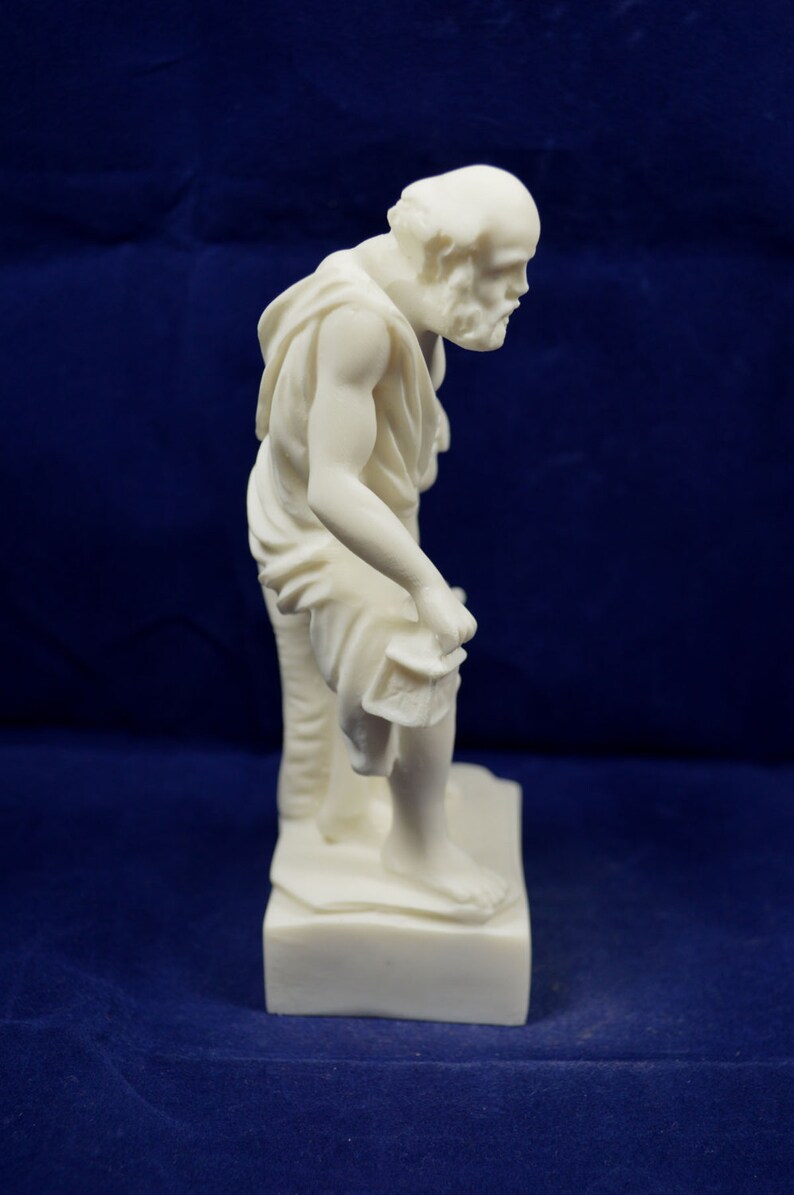

We still have a lot of quotes and examples of his disdain for intellectual pageantry. Diogenes took simplicity to an extreme that more than justifies Plato’s jibe that he is a Socrates gone mad. This simplicity applied not only to his material circumstances but to his intellectual philosophy.
Diogenes the cynic free#
The liberation from slavery to the bodily appetites allowed Diogenes to be free from submission to others. “If you would only have washed vegetables, you wouldn’t have to be subservient to Dionysius.” “If you had only paid court to Dionysius you wouldn’t have to wash your vegetables” Plato, seeing Diogenes eating his supper of lentils and bread remarks that: In another anecdote we have - and one of the many Plato-related anecdotes - Diogenes is approached one evening by the great prince of philosophers. The two endeavours were inherently connected. He was determined to be free not just of society’s demands upon him but even of his body’s demands on his soul.

Diogenes more than exemplifies this principle. Cynic comes from the Ancient Greek meaning dog and this has been attributed to the fact that its members lived like dogs.

Our modern word cynic derives from this ancient school of which Diogenes is the most famous philosopher. In winter, you could find him hugging icy statues and walking barefoot in the snow, while in summer you could find him rolling in hot sands.Īccording to many sources, this is where the term Cynicism comes from. He put his body through rigorous training to put up with the elements. This simplicity of living demanded a strong dose of self-control from Diogenes. Even this proved too luxurious one day, when he saw a boy drinking water from his hands he threw away the cup saying the boy had outdone him in simplicity. His possessions amounted to a cloak, a walking stick, a cup and a wallet to store food in. He shunned all possessions, status and wealth and strived to live a life of ascetic simplicity. When he first came to Athens, he took up residence in an upturned wine cask in the agora - the marketplace of Athens. Diogenes ruthlessly applied this simple rubric to every aspect of his life. It is said that when he asked Antisthenes to mentor him, the philosopher ignored him after Diogenes persisted, Antisthenes beat him with his staff.Īfter that treatment, Diogenes responded: “Strike, for you will find no wood hard enough to keep me away from you, so long as I think you’ve something to say.Simplicity manifests itself in two intertwined ways in the philosophy of Diogenes-the philosophical and the physical.įor this godfather of Cynical philosophy, living the good life is easy - it’s just a matter of stripping away all the bullshit, of cutting away everything that is unnecessary. Many called him a lunatic, yet his wit and caustic humor became widely known, and he earned the respect of philosophers.ĭiogenes found interest in the ascetic teachings of Antisthenes, who was a student of Socrates. The Greek philosopher routinely demonstrated his complete disregard for every person, and any norm of the society that they were a part of. The word “cynic” (in Greek kynikos (κυνικός) “dog-like”), derives from the word κύων or kynos, meaning dog, and was used to describe the dog-like behavior of Diogenes, who lived in the streets, sometimes eating raw meat, and performing his natural bodily functions in public, like a dog, without shame. Credit: National Gallery of Art, CC0/Wikimedia Commons “Diogenes in Search of an Honest Man.” Giovanni Benedetto Castiglione.


 0 kommentar(er)
0 kommentar(er)
